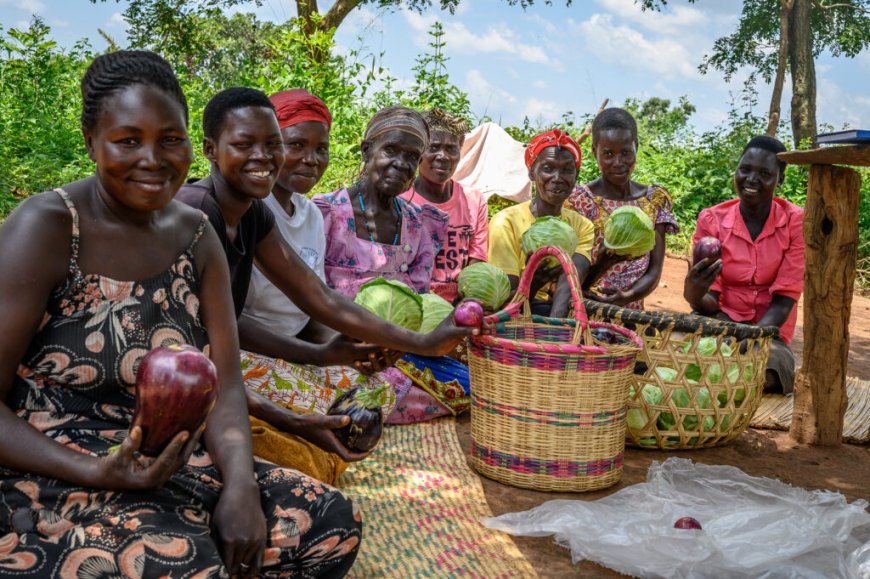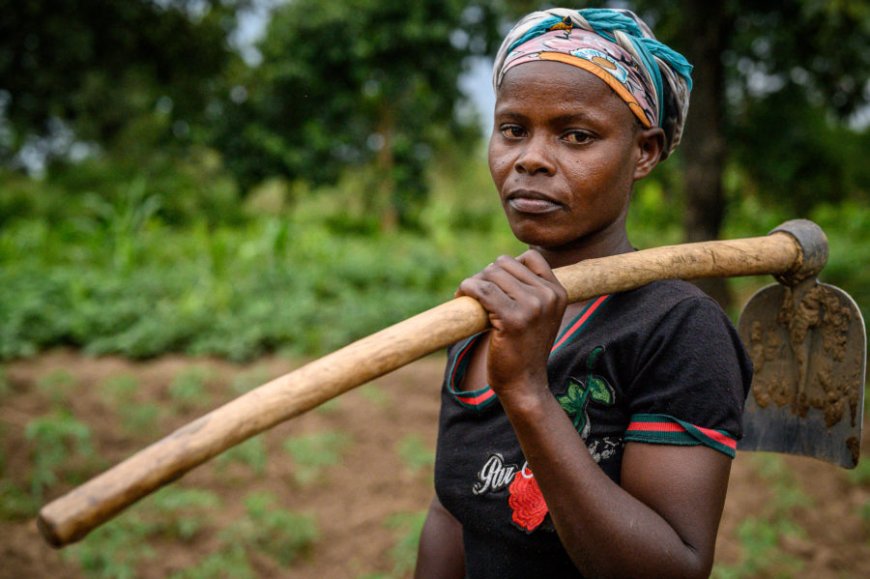How Smallholder farmer groups in Western Ward Parish in Hoima utilized credit schemes to agri-business owners.

In the '90s, farmers in Duhaga Parish found in Hoima District Western Uganda used to practice communal agriculture where several families would team up and till the land of one of the farmer’s gardens, in a bid to have a bigger land opened for cultivation, especially food crops.
Agriculture remains the mainstay of Uganda's economy with efforts both public and private directed at promoting sustainable investments in the sector to increase incomes, providing employment to the youth, food security, and wealth creation. It is worth noting that Uganda remains a food basket for the region.
Currently, farmers in that village have created farmer groups and credit-saving schemes aimed at collective fundraising and later lending to each in a rotation method.
When contacted, one of the women farmer groups locally known as Rusembe Farm Group has transformed from a farming group to an enterprise dealing in agri-business commodities including major cash crops that they sell as a group to bigger companies as raw materials.
The Team Leader, Nagawa Milly Phoebe an Agriculture Entrepreneur dealing in vegetables, fruits, and others said that going through training by The Ministry of Agriculture extension workers, opened her eyes to various business management areas which she pledged to transfer to fellow women back home to improve their businesses.
She particularly said that she was happy with the business tips from the training especially in setting goals, pricing of products, and human resource enumerations among others.
“Now after the training, I have discovered many gaps that were in my business, I can now respect my human resources better than before, I didn’t know that as a business owner, I deserve to be paid a salary. As a women leader, I will transfer the ideas from the training to benefit other women” she said
During the interview with Milly, she said that the majority of the farmers in their area are smallholders producing primarily to meet their immediate food needs, with a small surplus going to the market.
She added that to improve the productivity of small-scale food producers, there is a need to secure land and inputs, knowledge, financial services, and markets for social transformation.

Akello Stella
Another woman Farmer Akello Stella who owns an agri-business enterprise said that while dealing in farm produce, she faced many challenges, especially on how to save and invest money appropriately, but said that through interaction with other business leaders, she came to learn how to acquire credit from the revolving fund from their saving group and also learned how to mitigate risks in business and how to position herself while budgeting and wage management.
“After acquiring a loan from the group, I invested in my garden, at harvest my main market is in the neighboring districts in the Bunyoro subregion, Central Region. I started supplying in 2022. Young entrepreneurs should not join the business for that sake but through proper planning of a long-term business with a purpose” she advised
Uganda’s Ministry of Agriculture, Animal Industry and Fisheries (MAAIF) set up a Parish Development Model (PDM) for farmers to access small funding from the groups that were selected and capitalized.
The Parish Development Model (PDM) is working towards liberating farmers still stuck in subsistence (39.5%) and graduating them to commercial agricultural production, to raise family gross income to at least shs.20, 000,000 per year.
This effort according to the Director of Crop Resources n the Ministry Mr. Steven Byantware, is also emphasizing the issue of Food, animal feed, and nutrition security to this category of Ugandans.
The commodities being promoted under this effort are; Coffee, Poultry for eggs, Zero grazing for diary, piggery, Fish Farming and Food/ animal feeds.
“With more than two-thirds of Uganda’s population dependent on agriculture for a livelihood and a rapidly expanding population, investing in agriculture does not only boost food security but can also be a pathway to job creation”. Mr. Steven Byantware said
The Treasury of the Rusembe Farm Groug Saving Scheme, Mr. Stephen Kanakulya, highlighted that “For our agricultural lending, we started by focusing on smallholder farmers with loans as low as UGX 100,000. While this might seem modest, these funds have significantly impacted the farmers' operations. Currently, our total lending to this sector exceeds UGX 800 Million”.
He said that the loans has not only managed to support farmers but also other value chain players such as suppliers of inputs, processors, and aggregators, supporting agricultural commercialization by funding agro-processing and better access to markets by farmers.
“This has Improved incomes for rural households and reduced poverty with a positive knock-on effect on social indicators such as health and education. Through our agribusiness financing, we’ve also supported climate-smart practices, such as irrigation systems, which are essential for managing irregular rainfall. Many farmers have successfully implemented these systems on their farms,” he continued.
In one of the farmer trainings that I managed to access, I observed that farmers were not just given money but are also trained to manage their enterprises better through financial literacy and the application of modern farming practices. The training I participated had over 10,000 farmers trained in financial literacy and enterprise development while hundreds of Village Savings and Loan Associations were banked.
When I contacted one of the community-based organizations that was locally known as Nogamu, The Manager Mr. Charlton Namuwoza said that there is a need to enhance the incomes of the farmers, create jobs for young people through increased production, and increase the use of local made organic farm inputs which he said are better managers of pests and bigger land coverage.
“There is a need to increase organic production to address income generation, job creation and rural-urban migration of the youth and women. Uganda's organic farmers have an advantage when they buy local organic products. Inputs are cheaper, and effective in the management of pests. Rural farmers are typically organic farmers” he said
Uganda’s agricultural potential is among the best in Africa, with low-temperature variability, fertile soils, and two rainy seasons over much of the country - leading to multiple crop harvests per year.
According to information accessed from the Ministry of Agriculture, Uganda’s fertile agricultural land has the potential to feed 200 million people. Eighty percent of Uganda’s land is arable but only 35% is being cultivated.
In FY 2022/23, agriculture accounted for about 24% of GDP, and 35% of export earnings. The Uganda Bureau Of Statistics estimates that about 68% of Uganda’s working population is employed in agriculture.
Uganda produces a wide range of agricultural products including coffee, tea, sugar, livestock, fish, edible oils, cotton, tobacco, plantains, corn, beans, cassava, sweet potatoes, millet, sorghum, and groundnuts.
Commercialization of the sector is impeded by farmers’ limited use of fertilizer and quality seeds, and a lack of irrigation infrastructure – rendering production vulnerable to climatic extremes and pest infestations.
Sector growth is also impaired by the lack of quality packaging capabilities, insufficient storage facilities, poor post-harvest handling practices, shortage of agricultural credit, high freight costs, the lack of all-weather feeder roads in rural areas, a complicated and inefficient land tenure system, and limited knowledge of modern production practices.












